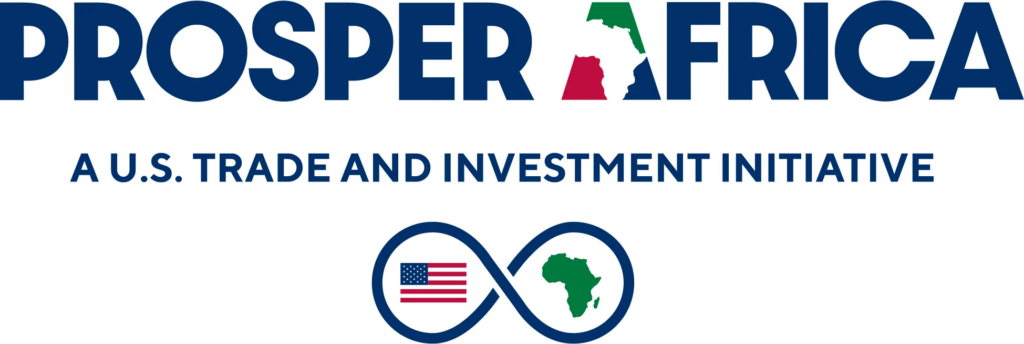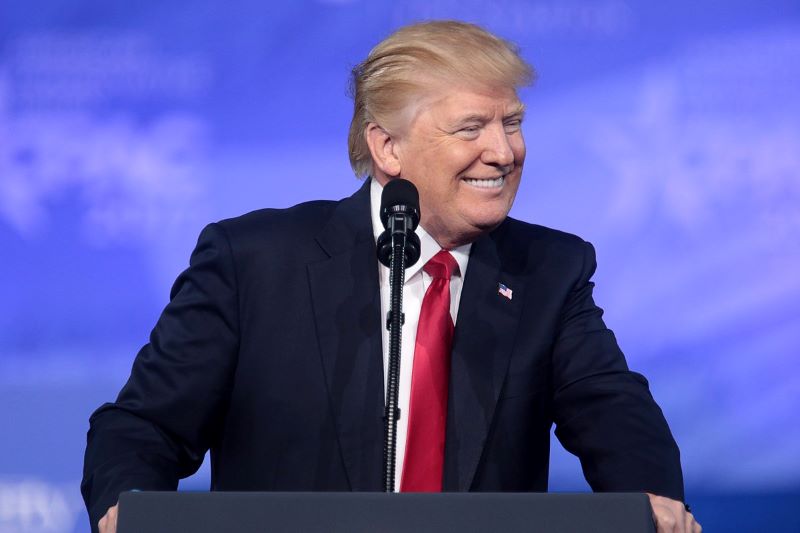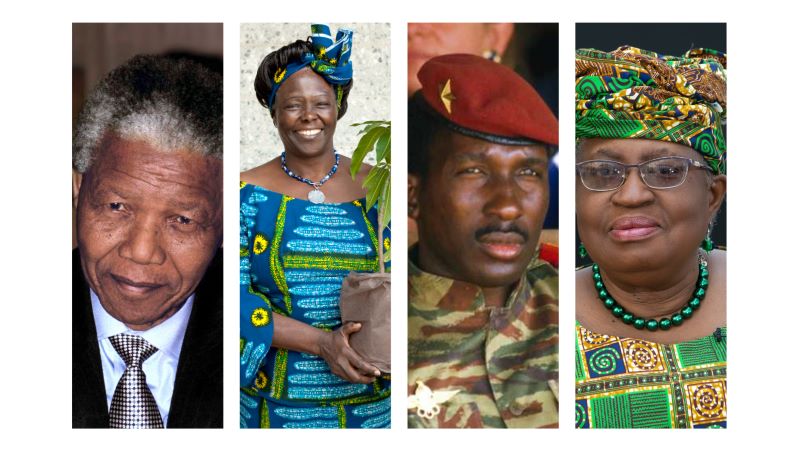Gage Skidmore from Peoria, AZ, United States of America, CC BY-SA 2.0, via Wikimedia Commons
Presidential elections in the United States don’t just determine who gets to sit in the Oval Office—they ripple across the globe, shaping alliances, investments, and even Twitter trends. For Africa, Donald Trump’s return to power in the 2024 elections signals a potential pivot in US-Africa relations. But don’t pop the champagne just yet. If history is anything to go by, Africa might be in for a ride—and not the smooth, air-conditioned kind.
Let’s break this down: What could a second Trump administration mean for Africa? And more importantly, should Africa brace itself for another round of being ghosted on WhatsApp?
Investment: The “Prosper Africa” Gambit
First, a quick look back. During Trump’s first term (2017-2021), US-Africa relations were about as vibrant as a Monday morning Zoom call—awkward and unproductive. The “Prosper Africa” initiative, launched in 2019, came with grand promises to strengthen economic ties and create shared prosperity. Spoiler alert: it fizzled out faster than a flat soda. Deals were inked, but the goodwill they promised? Let’s just say it got lost in translation.

Source: EXIM Support for Prosper Africa Benefits U.S. Small Business Exporters
Under Biden, Prosper Africa staged a modest comeback. By 2024, it had facilitated 2,500 deals worth over $120 billion, with notable wins like Mozambique’s $28.8 billion investment boost. This included a power project that brought electricity to 92 health facilities, an actual tangible result for once. Impressive, right? Now here’s the kicker: Trump’s second term could see a reboot of these initiatives, but don’t expect hearts and flowers. His approach is all about the transaction. Think fewer hugs and more “What’s in it for me?”
The pressure to counter China’s economic juggernaut in Africa could add urgency to Trump’s investment agenda. Enter the China hawks in his cabinet, armed with PowerPoint decks and ambitious plans to flood Africa with American investments. The pitch? Flashy announcements and maybe even the occasional shiny infrastructure project to rival Beijing. The reality? Likely less “Marshall Plan” and more “America First” branded as a charity. Trump’s diplomacy is less about partnerships and more about leveraging influence—preferably with a side of spectacle.
For African leaders, navigating this terrain will require tactical savvy. Trump might open the investment floodgates, but strings will inevitably be attached. If you’re expecting the U.S. to sing “Kumbaya” around a bonfire of shared dreams, you’ll be sorely disappointed. What’s likely on offer is a pragmatically self-interested U.S., wrapped in transactional fine print.
Trade: The AGOA Saga
Ah, AGOA—the African Growth and Opportunity Act—a trade pact that’s supposed to make everyone happy. It allows duty-free access for African exports to the US. Sounds great, right? Well, here’s the twist: Trump’s protectionist leanings make AGOA’s future as stable as a Jenga tower in an earthquake.
As of 2024, AGOA benefits only 32 out of 54 African countries. Worse still, more than 80% of these benefits go to just five nations. Under Biden, AGOA limped along, with eligible imports hitting a mere $9.7 billion in 2023, far below the 12-year average of $21 billion. Trump’s proposed universal 10% tariff on all foreign-made goods could throw AGOA off a cliff.
South Africa, a major AGOA beneficiary, is already in the crosshairs. Its neutral stance on the Russia-Ukraine war and growing ties with China haven’t won it any favors in Washington. If AGOA isn’t renewed in 2025, South Africa’s $23.7 billion trade relationship with the US could take a serious hit.
The consequences of non-renewal extend far beyond South Africa. African countries, already grappling with economic challenges, could face a daunting reorientation of their trade dynamics. With the US market becoming less accessible, these nations might pivot toward other global powers like China or the EU. This shift could intensify Africa’s dependence on Chinese investments and loans, strengthening Beijing’s influence on the continent. While the EU might emerge as a viable alternative, its stringent trade and environmental standards could pose barriers for African exporters.

Source: AGOA – Africa Trade Development Center (ATDC)
Politically, AGOA’s collapse might signal a retreat of US soft power in Africa, opening the door for rivals to deepen their ties. The broader narrative? Africa could become a battlefield for competing global interests, forcing its leaders to navigate a complex web of alliances and dependencies. Without AGOA, the US risks ceding its influence to more agile and opportunistic players. The stakes are high, and the clock is ticking.
Security Alliances: Fewer Boots, More Deals?
Let’s talk about the military—or the lack thereof. Trump’s “America First” philosophy often translates to “America out of here.” During his first term, he questioned the presence of US troops in Africa after an ambush in Niger. A second Trump term might see further troop reductions, aligning with his preference to keep American soldiers out of harm’s way. This would mark a significant shift in the U.S.’s military footprint on the continent, particularly as other powers like Russia and China continue to expand their security collaborations.
But wait, there’s a plot twist. While Trump might pull back militarily, he’s unlikely to abandon strategic influence entirely. Enter Somaliland, a potential wildcard in this chess game. Recognizing Somaliland’s independence could serve as a bold move to hedge against waning U.S. influence in Djibouti and the broader Red Sea region. Such recognition would not only bolster the region’s strategic significance to Washington but also potentially weaken China’s grip on Djibouti, where Beijing already operates a robust military base. However, this move risks igniting diplomatic tensions with Somalia and its allies, adding a layer of geopolitical complexity.
Beyond Somaliland, Trump’s administration might pivot toward fostering partnerships that involve arms sales, security training programs, and intelligence sharing, framing these deals as cost-effective alternatives to direct military intervention. This strategy could appeal to Trump’s penchant for transactional relationships while maintaining a foothold in Africa’s security landscape. High-stakes gamble? Absolutely. But when has Trump ever shied away from rolling the dice?
Immigration: Same Old Story?

Rally against Trump’s “Muslim Ban” policies in 2017
Lorie Shaull from Washington, United States, CC BY-SA 2.0, via Wikimedia Commons
Remember the “Muslim ban” from 2017? Trump’s hardline immigration policies are unlikely to soften in round two. He’s already pledged to deport one million undocumented immigrants. For African countries, this could mean stricter visa policies, reduced pathways for educational and work-related immigration, and significantly less leniency in refugee resettlement.
This could exacerbate brain drain issues, particularly for African nations that rely on their diaspora communities in the U.S. to send remittances and foster cultural ties. Moreover, the reduction in visa approvals might hinder collaborations in areas like science, technology, and healthcare, where African professionals often contribute significantly to U.S. industries.
This approach isn’t just about border security; it’s a reflection of Trump’s broader worldview, one that prioritizes a fortress-like stance on immigration. Don’t expect the Statue of Liberty’s “give me your tired, your poor” inscription to make a comeback anytime soon. Instead, brace for policies that emphasize restriction over inclusion, leaving African nations to recalibrate their engagement with an increasingly insular United States.
The China Factor
Here’s the elephant in the room: China. With Beijing’s growing footprint in Africa, Trump’s administration will likely view the continent as a battleground for influence. From infrastructure projects to resource extraction, China’s presence is undeniable. Trump’s strategy? Counter China with more American investments but on America’s terms.

Image Source: LinkedIn | Africa-China Relations
Expect a lot of chest-thumping about “free markets” and “democracy,” but the execution might be as smooth as a school play. The US could push for greater private-sector involvement in Africa, but without addressing systemic challenges, it’s like trying to fill a bathtub with a leaky bucket.
The Bigger Picture
Let’s not kid ourselves. Africa’s importance on the global stage is undeniable. Its vast mineral reserves, strategic maritime routes, and collective diplomatic power make it a key player. Even Trump’s Project 2025 acknowledges Africa’s growing significance to US strategic interests.
But here’s the catch: Trump’s approach is likely to be transactional, pragmatic, and—let’s face it—unpredictable. Whether it’s investments, trade, or security alliances, Africa might find itself constantly negotiating for a seat at the table.
So, what does Trump’s presidency mean for Africa? In a nutshell: uncertainty. There will be opportunities for investment and strategic partnerships, but these will come with strings attached. Trade relations could suffer under protectionist policies, while security alliances might see a shift in focus.
Africa’s leaders would do well to approach Trump’s administration with cautious optimism. After all, when dealing with Trump, the only thing you can truly predict is unpredictability. And maybe a tweet or two about how he “just had the best call with the best African leaders—truly tremendous people.”
Buckle up, Africa. It’s going to be an interesting four years.

Anand Subramanian is a freelance photographer and content writer based out of Tamil Nadu, India. Having a background in Engineering always made him curious about life on the other side of the spectrum. He leapt forward towards the Photography life and never looked back. Specializing in Documentary and Portrait photography gave him an up-close and personal view into the complexities of human beings and those experiences helped him branch out from visual to words. Today he is mentoring passionate photographers and writing about the different dimensions of the art world.





